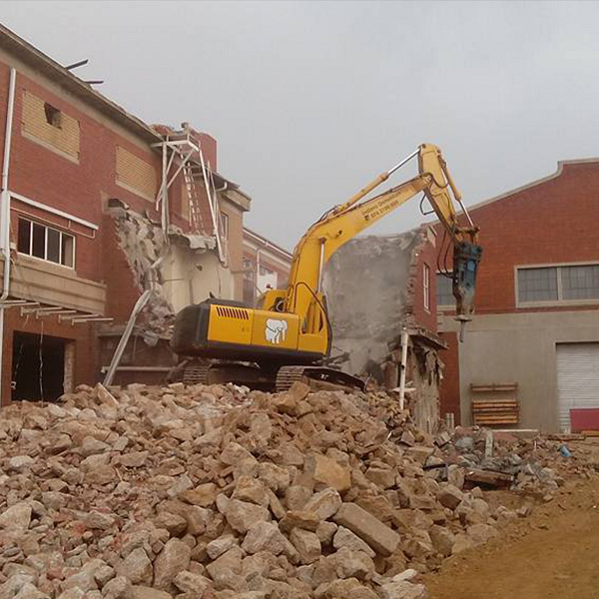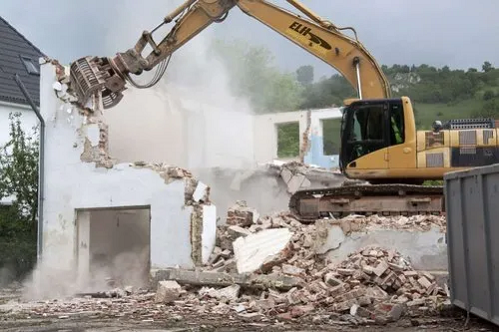Building demolition contractors: Professional Services for Safe and Efficient Demolitions
Building Demolition Contracts: Your Trusted Partner for Seamless Demolition Projects
Building demolition contracts are crucial for commercial and residential projects, offering professional and dependable solutions. Demolition contractors bring their expertise and experience to ensure safe and efficient demolitions, regardless of the building type. Whether it’s a commercial, residential, or industrial structure, these experts prioritize compliance with regulations and guidelines. By entrusting your demolition needs to skilled demolition contractors, you can be confident in the successful completion of your project with a focus on safety and adherence to industry standards.
Commercial building demolition is a specialized area that requires meticulous planning and execution. Demolition contractors possess the knowledge and skills to handle large-scale commercial demolitions, including office complexes, warehouses, and retail spaces. They are well-versed in the specific requirements of commercial demolitions, such as managing environmental impact, coordinating with neighboring businesses, and ensuring minimal disruption to surrounding communities.
Residential building demolition involves the demolition of single-family homes, duplexes, or small structures. Demolition contractors understand the unique considerations of residential demolitions, including minimizing noise and dust in residential areas, prioritizing safety for nearby residents, and effectively managing waste disposal. Their expertise ensures that residential demolitions are conducted with precision and care, preserving the integrity of neighboring properties and maintaining a safe environment.
Demolition contractors offer a wide range of services beyond simply tearing down structures. They provide professional demolition project management, overseeing every aspect of the demolition process. From initial assessments and permit acquisition to coordination with subcontractors and waste management, these experts handle all the necessary tasks for a successful demolition project.


Safety is a top priority in building demolitions, and professional demolition services prioritize safe practices and compliance with regulations. Demolition contractors utilize advanced techniques, equipment, and protective measures to ensure the safety of their workers, nearby residents, and the environment. They employ experienced teams that are trained in demolition protocols, hazard identification, and safe handling of materials.
Environmental consciousness is another crucial aspect of modern demolitions. Building demolition contracts emphasize environmentally friendly practices, including recycling and waste management. Demolition contractors strive to maximize recycling and salvage usable materials, minimizing the impact on landfills and reducing the carbon footprint associated with demolitions.
For industrial building demolition, specialized skills and equipment are required. Demolition contractors experienced in industrial demolitions can handle complex structures, such as factories, power plants, or industrial facilities. They possess the expertise to safely dismantle large-scale industrial buildings, including dealing with hazardous materials and ensuring compliance with industry-specific regulations.
Structural demolition services provided by reputable contractors ensure the careful dismantling and removal of buildings. These services require expertise in understanding the structural integrity of the building, utilizing appropriate demolition techniques, and managing debris removal. Structural demolition services focus on efficient and safe dismantling while minimizing any potential risks.
Demolition and site clearance services encompass not only the demolition of structures but also the clearing and preparation of the site for future use. Demolition contractors offer comprehensive site clearance solutions, including debris removal, grading, and ensuring a clean and safe site post-demolition. Their attention to detail ensures that the site is ready for the next phase of development.
Partnering with demolition specialists provides numerous benefits for your demolition projects. Their expertise, industry knowledge, and commitment to excellence ensure that demolitions are conducted professionally, safely, and efficiently. Demolition contractors bring a level of expertise and experience that is essential for successful demolition projects.
Building demolition contracts offer comprehensive services for commercial and residential demolitions, encompassing project management, safety, environmental considerations, and specialized expertise. By collaborating with professional demolition contractors, you can rest assured that your demolition projects will be handled with care and precision, resulting in safe and efficient demolitions that meet your needs and comply with all regulations.


